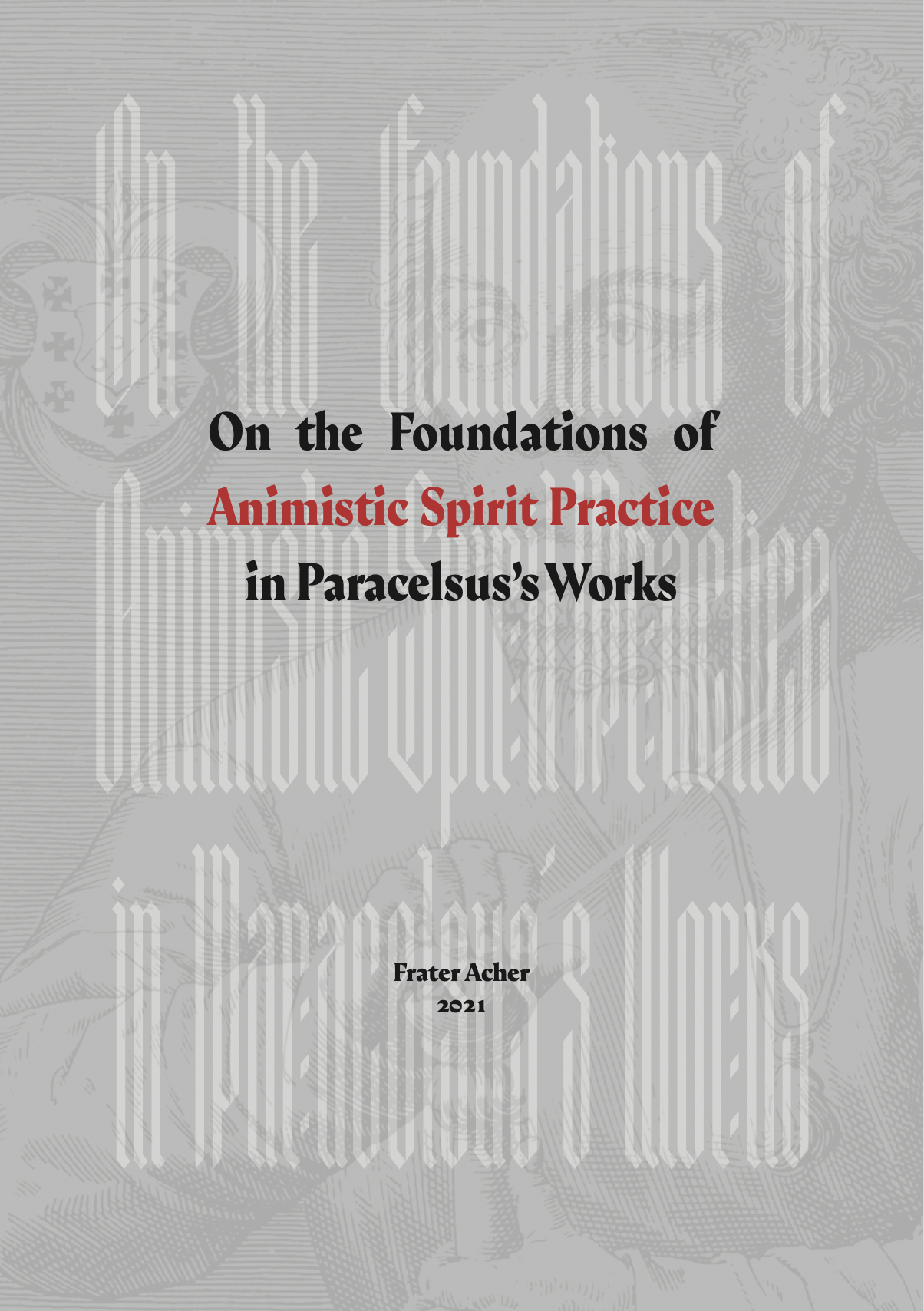On the Foundations of Animistic Spirit Practice in Paracelsus’s Works
As I continue to study the writings of Late Medieval German magicians and mystics, I am often overwhelmed with the amount of fresh insights, new perspectives and innovative approaches I see myself confronted with. Most of this research I do in the early morning hours, between 5am and 8am, before the world around me awakens. Often I stumble out of these hours into my days, filled with equal amounts of inspiration and cognitive dissonance, feeling thoroughly knocked off-centre.
It was through this experience that I came to write the essay I am sharing here: On the Foundations of Animistic Spirit Practice in Paracelsus’s Work.
Free PDF Essay
Click to download complete essay in PDF format. © Copyright 2021, Frater Acher; all rights reserved. Free for digital distribution only.
This small study came to life as an offshoot from the research I began for Holy Heretics (Scarlet Imprint, 2022) and am still continuing for my next book, loosely titled Ingenium. By reading carefully across Paracelsus’s collected works (which equals at least twenty heavy volumes in highly complex Early Modern German language, and many texts only remaining as fragments), it quickly became apparent how central the idea of the human inner firmament and the related idea of the inner ascendant are to his entire oeuvre.
However, as much as I studied the English and German secondary literature, there is almost no mentioning of either of these concepts. It is as if, despite the critical position these concepts take in Paracelsus’s cosmology, they had been deliberately overlooked in Paracelsian studies for several centuries. Why is that, I can only hypothesise? Most likely, it might be due to a combination of the difficulty to access Paracelsus’s works overall (especially outside of the German language), the deliberate attempt to eradicate mystical and magical thinking from his works as witnessed in e.g. Sudhoff’s interpretations, and thirdly, in a general lack of attention to his works overall.
The current essay by no means can make up for these shortcomings. Rather, it is intended to be a torch thrown into the dark, unexplored realms of this man’s genius. My obvious and probably naive hope is that someone might catch this torch and walk on with it. If, however, its flames will die down in full flight, my more realistic hope remains that it might hit some magicians and astrologers as a blunt club to the head. For that is what happens to me, each time I delve deep into Paracelsus’s writings: I see my mind cut, I bleed certainties, only to witness the morning star of new possibilities.
I am sharing this little essay as the first volume in a loose new series of digital releases called Büchlein Morgenstern.
The German term translates as Booklet Morningstar and has at least two ways in which it should be read: The celestial morning star, Venus, has long been associated with Lucifer, the light-bringer, in all his Promethean glory and hubris. Equally, the German term Morgenstern can be translated as mace, and thus identifies an ancient, blunt and yet most brutal weapon. Delving into the authentic depths of Paracelsus – with other authors to follow in this series, as my studies progress – precisely offers this dual promise: A promise of seeing new light as long as we accept the stark pain of losing part of our (intellectual) armoury on this journey.
This first humble contribution, On the Foundations of Animistic Spirit Practice in Paracelsus’s Work, therefore might be both: A torch thrown, and a mace swung at you. It is both to me; for personally I am still wrestling with the insights it presents as they relate to my own magical practice and work.
A final note: I am neither a medic, a botanist, a geologist, a theologist, a studied philosopher, nor a properly trained astrologer. Paracelsus was all of that and much more. The limitations of my own contribution on his work, therefore, are more than clear from the outset. I am writing this essay, first and foremost, as a magical practitioner. Thus, while touching on many aspects of the above faculties, the main focus lies on understanding better what underlies, enables and defines our magical practice with spirits – according not to my own, but to the authentic ideas of Paracelsus. I am not sharing this context to ask for forbearance for the many mistakes in this essay; but to create awareness for how to get the most from it.
To finish, I have to acknowledge that this essay is entirely self-published. Thus, it has not undergone professional copy-editing or proof-reading. I apologise in advance for slips of pen or obvious grammatical errors. They are all my own, and unfortunately had to be accepted, in order for this work to be shared openly and freely with you all.
LVX,
Frater Acher


